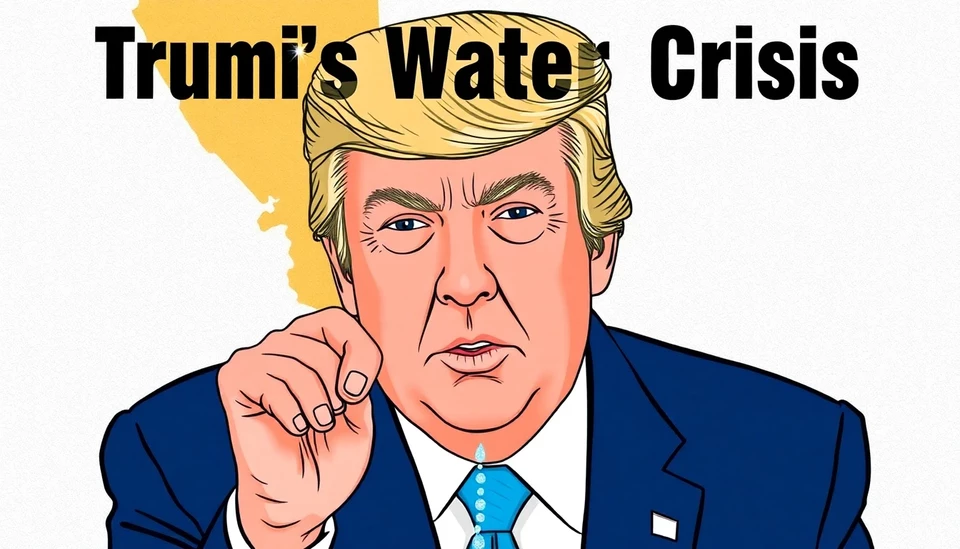
In a bold move that has sparked wide-ranging discussions, former President Donald Trump signed an executive order aimed at altering water usage policies in California. This directive is seen as primarily beneficial for agricultural interests, particularly farmers located in the state’s drought-prone areas, raising important questions about its implications for urban water supply, particularly in densely populated regions like Los Angeles.
The executive order, which was issued amid ongoing concerns about severe drought conditions impacting California, is designed to facilitate increased water deliveries to farmers. By altering the bureaucratic processes involved in water allocation, the former president aims to maximize agricultural productivity in a state crucial to the nation’s food supply. This decision comes at a time when many have been voicing concerns regarding the sustainability of water resources amid climate change exacerbated conditions.
Critics of the order argue that it could prioritize the needs of farmers over urban residents, potentially leading to conflicts over water rights and usage. While farmers may receive a boost in water supply, urban centers such as Los Angeles face the prospect of diminished water availability as policies become skewed in favor of agricultural interests. This contention underscores the broader debate about the allocation of resources in a state known for its diverse environmental challenges.
The directive has led to a reexamination of California’s long-standing water management policies, which were designed to balance the needs of both urban and rural communities. Environmental advocates have expressed fears that, due to the changes ushered in by this order, ecological considerations may be sidelined, leading to potential long-term impacts on water quality and habitat preservation.
Supporters of Trump’s initiative argue that the urgent need to support farmers, who are critical to the state’s economy, justifies the changes. They contend that providing farmers with more water will sustain the agricultural sector, ensuring that food production remains robust during times of ecological distress. However, this perspective overlooks the potential repercussions for urban water systems, particularly in metropolitan areas where demand continues to rise.
California has been facing intense drought conditions over the past few years, leading to serious water shortages. The state is home to over 39 million residents, who rely heavily on a carefully calibrated water distribution system that prioritizes both agricultural output and municipal supply. Balancing these competing demands has always been a challenge, but under this new directive, observers worry that the scales may tip disproportionately towards agriculture, leaving urban residents vulnerable to water rationing and increased costs.
As the situation develops, it remains essential for stakeholders from all sides to engage in a constructive dialogue about the future of California’s water management. With the looming threat of climate change, and the increasing unpredictability of weather patterns, finding sustainable approaches to resource allocation is more important than ever. Leaders across the political spectrum will need to address how best to preserve California’s water resources while honoring the complex tapestry of needs presented by its diverse populace.
In conclusion, Trump's water order is a clear indication of the ongoing battle over California’s precious water resources, pitting agricultural interests against urban demands. The long-term effects of this order will likely reverberate throughout the state, forcing a reevaluation of what sustainable water management looks like in an era of profound environmental change.
#TrumpWaterOrder #CaliforniaWaterCrisis #AgricultureVsUrban #WaterManagement #Sustainability #CaliforniaDrought #UrbanNeeds
Author: Megan Clarke




